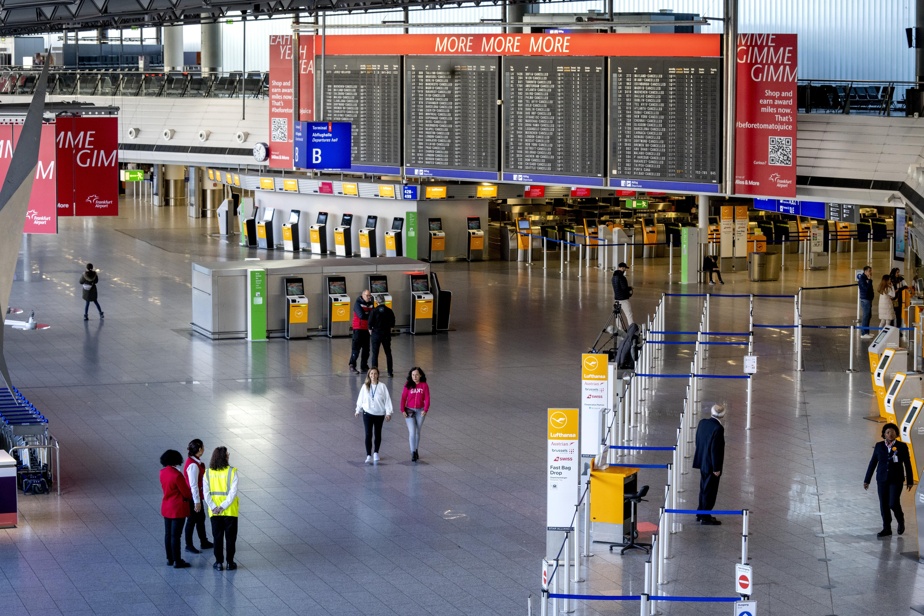(Berlin) A strike movement of a rare scale for Germany paralyzes the transport sector on Monday at the call of the unions which demand better wages to compensate for inflation.
The mobilization takes place in a context of growing social tensions in Europe’s largest economy. Strikes for wages have multiplied since the beginning of the year, from schools to hospitals, including the Post Office.
Users must be patient on Monday throughout the country where trains, buses and trams are rare. Airports, maritime and river freight, motorway companies are also affected by this 24-hour work stoppage.
Some express their irritation: “The strike is going too far. What the strikers are asking for is exaggerated,” said 73-year-old Gloria Bierwald at a Berlin station, late for her appointments.
Others understand movement. ” It is very good. You have to be aware of the enormous work done by the strikers, ”says Steffi Wisser, a 46-year-old cashier.
Unlike countries like France, such a unitary movement between the EVG and Ver.di unions, representing 230,000 railway workers and 2.5 million service employees respectively, is extremely rare.
This so-called “warning” strike coincides with the start on Monday of the third round of tariff negotiations between the employers and the Ver.di union, which is demanding a 10.5% wage increase.
This “Mega-Streik” (mega-strike) – as the German media dubbed it – affects a country where prices have soared for more than a year, with inflation reaching 8.7% in February.
Employers (states, municipalities, public companies) offer a 5% increase with two single payments of 1000 and 1500 euros.
Nearly “30,000 employees” have stopped working in the rail sector alone, according to EVG. “This is the biggest participation in a strike in years,” said Franck Werneke, boss of the Ver.di union.
On the screens of the train station in central Berlin, delays of more than 300 minutes are displayed on the screens.
“I don’t judge workers who go on strike. We have to support them, ”says Julia, 38, educator, late for a medical appointment.
Angelika Koch, a 65-year-old retiree, points out that she too “makes little money, but” the strike is an endless spiral, it is useless “, she slices.
The Federation of German Airports (ADV) has denounced a strategy “of escalating strikes on the model of France”, where days of mobilization follow one another against the pension reform.
“Germany is far from being the European strike day champion,” replied Martin Burkert, president of the EVG union, on Monday.
The ground is increasingly favorable to the social movement in Germany, where the search for consensus usually characterizes relations between employers and unions.
“There have been more strikes in the last ten years in Germany than in previous decades,” observes Karl Brenke, expert from the DIW economic institute interviewed by AFP.
With a particularly low level of unemployment since the end of the 2000s, the country suffers from a lack of labor which puts “a strong position” for the unions in the negotiations, according to Mr. Brenke.
Since the mid-2010s, they have succeeded in imposing increases, after a decade marked by the wage moderation policy of the Gerhard Schröder era, in the name of competitiveness.
In 2015, a record was set, with more than 2 million strike days in the year. Real wages increased systematically from 2014 to 2021, except in 2020 due to the COVID-19 pandemic.
The momentum was broken by inflation in 2022, with a decline of 3.1%.
“We have kept the public service alive during the pandemic. Now we want more money,” said Petra, 60, who came across a protest on Berlin’s iconic Friedrichstrasse.
At the end of 2022, nearly 4 million German industrial workers won an 8.5% wage increase over two years, after several weeks punctuated by work stoppages.





















